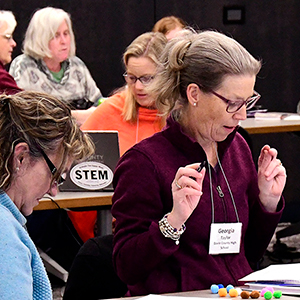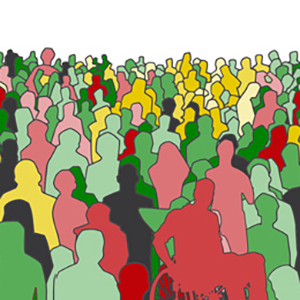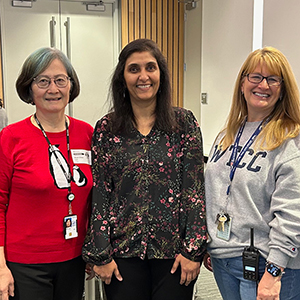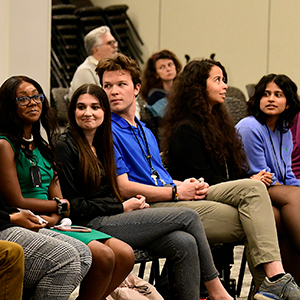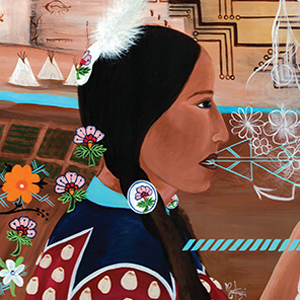Ableism, which is discrimination or prejudice against people with disabilities, was the focus of the Oct. 24 NIEHS Diversity Speaker Series event in recognition of National Disability Employment Awareness Month. David Rice, the acting branch director of the National Institutes of Health (NIH) Office of Equity, Diversity, and Inclusion (EDI) Special Emphasis Programs, shared his own experiences with ableism since becoming deaf at age four.
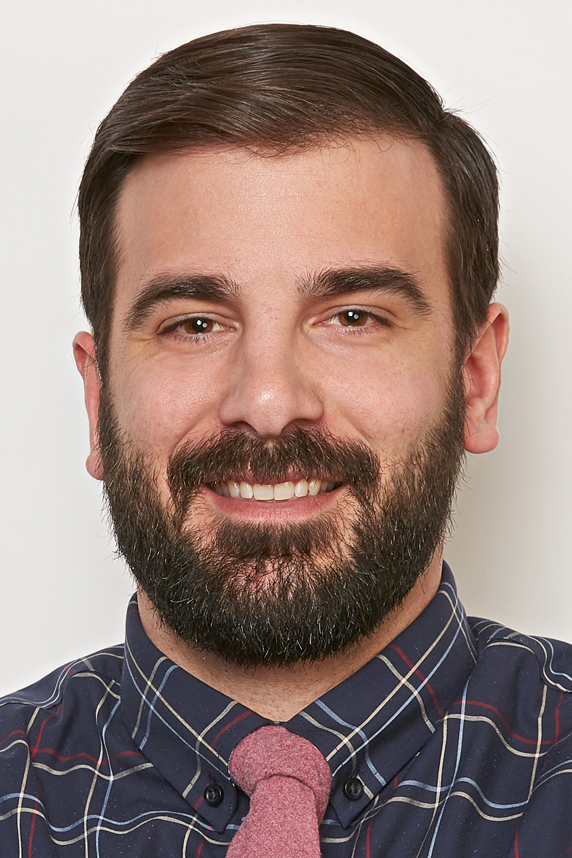 Rice was the featured speaker for the NIEHS Diversity Speaker Series, hosted by the Office of Science Education and Diversity, in honor of National Disability Employment Awareness Month in Oct. (Photo courtesy of NIH)
Rice was the featured speaker for the NIEHS Diversity Speaker Series, hosted by the Office of Science Education and Diversity, in honor of National Disability Employment Awareness Month in Oct. (Photo courtesy of NIH)A common issue
Rice reminded the audience that disability is common with 15% of the world’s population living with a disability. In the U.S., people with disabilities make up the single largest minority group, with an estimated one-in-four adults having some sort of disability — including disabilities that are invisible.
“To most of society, ableists believe their behavior doesn’t raise any red flags because they are woven into the fabric of everyday life and simply accepted as the norm,” Rice said. “For people with disabilities, though, ableism is always there. It is a part of life and never disappears, manifested from broad, systematic forms of discrimination to individual interactions. It is a self-perpetuating cycle.”
Ableist behavior disadvantages someone with a disability. For example, Rice described a person who is wheelchair-bound attempting to navigate the New York City subway system. Only 25% of the system’s stations have elevators, thus rendering 75% of stations inaccessible.
No one is less than
A form of ableism that Rice has personally experienced is people complimenting him on how well he speaks. “As if I am superior to other deaf individuals because I talk,” he said.
Ableism assumes that people with disabilities cannot live full lives, Rice explained, while failing to account for the systematic barriers that people with disabilities are forced to navigate daily.
Rice challenges people to stop viewing disabilities as a negative. People with disabilities are an asset because they can look at situations in different ways than other individuals might. Through their experiences, they have a lot to offer to make the world a better place.
“It is not that we are not able, it is that society is not accessible to us to be able to do certain things,” he said.
Advocating for lasting change
Creating a more accessible world is a civil rights issue, according to Rice. Unfortunately, inequities are often greater for people who have a disability and belong to a minority group. Black women with disabilities face enormous challenges, Rice said, and people living in poverty are more likely to have a disability.
Rice suggested society move away from the medical model of disability, which assumes that someone with a disability is broken and must be fixed. Instead, he recommends the social model of disability, which holds that society disables people by creating barriers to access and by changing society, the world becomes a more accessible place.
“We have an opportunity to make truly lasting change by including people with disability,” he said. “Put us at the table making decisions. Put us in the conversation when we are talking about making NIH and the world a better place — we must always include people with disabilities.”
(Kelley Christensen is a contract writer and editor for the NIEHS Office of Communications and Public Liaison.)





